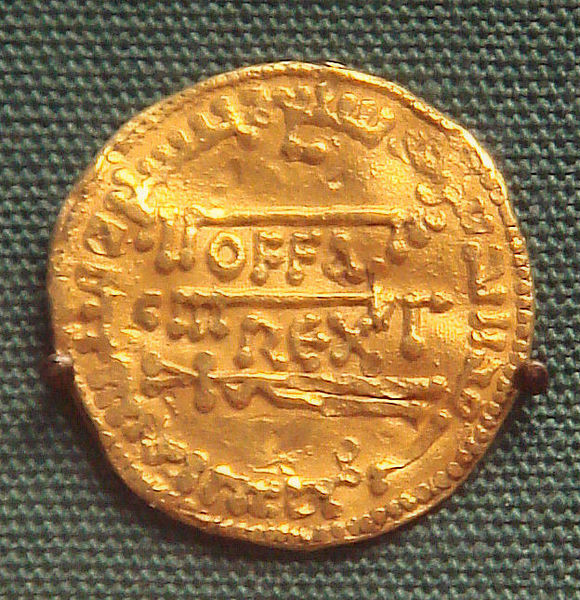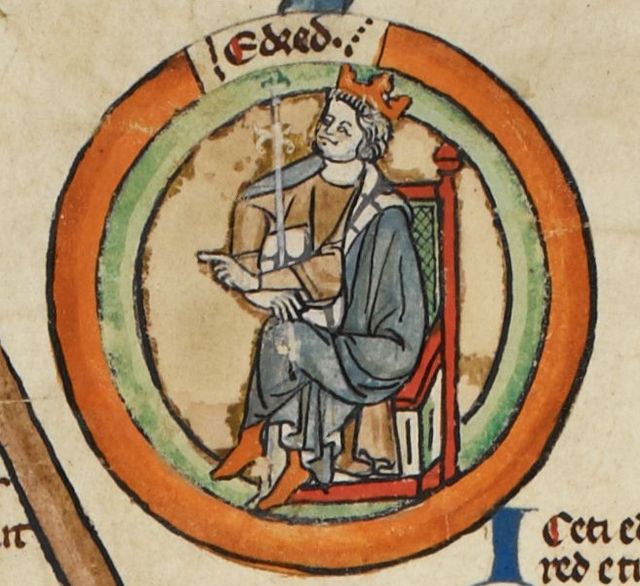Mancus was a term used in early medieval Europe to denote either a gold coin, a weight of gold of 4.25g, or a unit of account of thirty silver pence. This made it worth about a month's wages for a skilled worker, such as a craftsman or a soldier. Distinguishing between these uses can be extremely difficult: the will of the Anglo-Saxon king Eadred, who died in 955, illustrates the problem well with its request that "two thousand mancuses of gold be taken and minted into mancuses".
A mancus of king Æthelred II, 1003–1006.
A mancus, or gold dinar of the English king Offa of Mercia (757–796), a copy of the dinars of the Abbasid Caliphate (774). It combines the Latin legend OFFA REX with Arabic legends. The date of A.H. 157 (773–774 AD) is readable. British Museum.
Eadred was King of the English from 26 May 946 until his death. He was the younger son of Edward the Elder and his third wife Eadgifu, and a grandson of Alfred the Great. His elder brother, Edmund, was killed trying to protect his seneschal from an attack by a violent thief. Edmund's two sons, Eadwig and Edgar, were then young children, so Eadred became king. He suffered from ill health in the last years of his life and he died at the age of a little over thirty, having never married. He was succeeded successively by his nephews, Eadwig and Edgar.
Eadred in the early fourteenth-century Genealogical Roll of the Kings of England
Silver penny, obverse, inscribed 'EADRED REX'
HT1 style reverse inscribed 'INGELGAR M'
Portrait of Dunstan kneeling before Christ, probably by Dunstan himself






